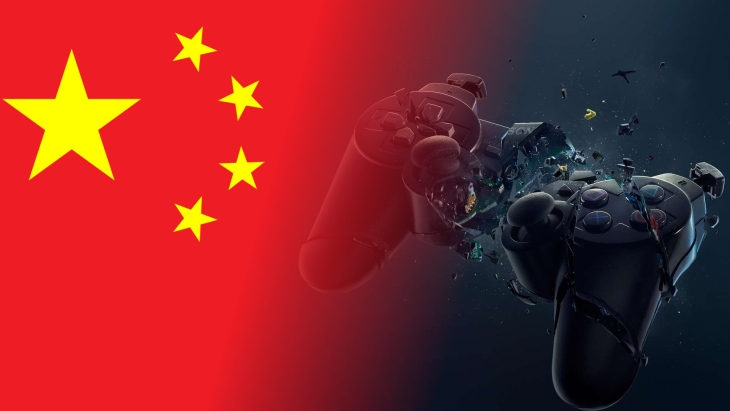
UPDATE: This article has been updated to reflect the ban applying to online video games. Additional spaces between paragraphs have been added for easier reading.
The Chinese government has banned children from playing online video games during the week, with only an hour a day on Fridays and the weekend.
The Wall Street Journal reports that the National Press and Publication Administration announced the ban would be for children playing online video games Monday through Thursday. On Fridays, weekends, and public holidays they can play between 8:00 p.m. and 9:00 p.m. Though an age was not specified, Wall Street Journal reports prior video game regulations have included those under the age of 18.
For comparison, in November 2019, China introduced laws limiting how ling under 18s could play online video games. This included playing them between 10 p.m. and 8 a.m., in addition to a 90 minute per-day restriction (or three hours per-day at weekends and public holidays). There were also spending limits for online games.
Even an adult is likely to struggle, thanks to the “social credit” system. That policy grants perks for “good citizens” (access to better schools for your children), and restrictions on “bad citizens” (publicly named and shamed, or banned from using public transport). Playing games for “too long” could be deemed being a bad citizen, compared to finding a wife, or helping the local community.
The law was designed to curb video game addiction (also known as gaming disorder), along with distracting them from school, family responsibilities, and causing other societal ills. Chinese tech giant Tencent recently lost almost $60 billion USD in stock value; after Chinese state media’s Economic Information Daily described online games as “spiritual opium.”
How the law will be enforced was also not explained. The Wall Street Journal reports that Tencent had previously automatically kicked players off of their games when they had played for too long, via China’s real-name registration law for internet access, and facial-recognition.
While China’s state-run Xinhua News Agency praised the move as the government aiming to “effectively protect the physical and mental health of minors,” the move will surely have massive effects on the Chinese gaming industry, and those hoping to market their games in China.
This may explain why Chinese companies such as Tencent have been investing in foreign companies. They set up US studio LightSpeed LA to make PlayStation 5 and Xbox Series X|S AAA games. They had previously sought industry veterans for a blockbuster titles, including Konami developer Kenichiro Imaizumi, and Scott Warner (Planescape: Torment, Mercenaries 2: World in Flames, Halo 4).
We have also seen several games with more western appeal being developed by Tencent’s TiMi Studios; including Metal Slug Code: J, and Pokemon Unite. Contract disputes with Tencent lead to Amazon Games cancelling their The Lord of the Rings MMO.
Tencent’s portfolio includes ownership of Riot Games, Sumo Digital’s parent company, 80% of Grinding Gear Games, 40% in Epic Games, 29% in Funcom, 5% in Activision Blizzard, 5% in Ubisoft, 5% in Paradox Interactive, a “major investment” in PlatinumGames, a majority stake in Klei Entertainment, a major shareholder for Marvelous, a minority stake in Dontnod Entertainment, and others.
Most recently, Chinese internet technology and video game company NetEase are reportedly looking to poach Sega’s Yakuza creator Toshihiro Nagoshi.
Image: Wallpaper Safari, Wikipedia